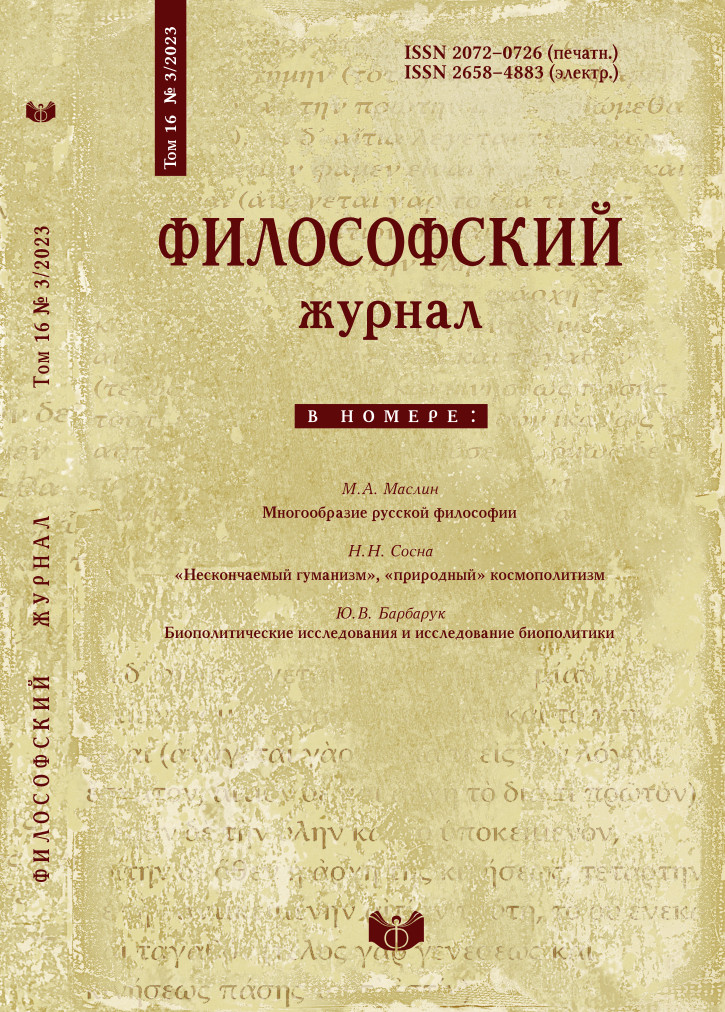Metaphilosophy of philosophical “turns”: case study
DOI:
https://doi.org/10.21146/2072-0726-2023-16-3-55-68Keywords:
turn in philosophy, analytical turn, linguistic turn, pragmatic turn, ontological turnAbstract
The purpose of the article is to consider the phenomenon of philosophical “turn” in the framework of descriptive metaphilosophy. Using the example of analytical, linguistic, pragmatic and ontological turns, an attempt is made to highlight the characteristic features of “turns”. The author shows that the analytical turn is associated with the development of methods of philosophy, primarily with the diversification of the concept of analysis itself. Consideration of the linguistic turn leads to the position that its characterization as a change in the subject of philosophy is not quite adequate – in fact, it is a change in the methods of philosophical analysis, which leads to the emergence of new problem areas not only in philosophy, but also in linguistics. The pragmatic turn is characterized by emphasizing the role of pragmatism in overcoming the existing opposition of analytic and continental philosophy through the use of both logical and, for example, axiological methods or the “pragmatic principle”. The ontological turn, characteristic of anthropology, the philosophy of technology, as well as for “general” philosophy, is associated with a change in the methods of analysis in the direction of solving the problem of seeing “things in a new way” and how “they really are”. The analysis in the case of an ontological turn is aimed not so much at “multiculturalism” as at “multi-naturalism”, at taking into account the active role of the subject and building the research models capable of taking this into account. The final position of the author is that according to which a “turn” is a change in research methods that leads to the formation of a new subject area and the formulation of new problems. They, in turn, stimulate the next “turn” and the development of new methods and methodologies.






